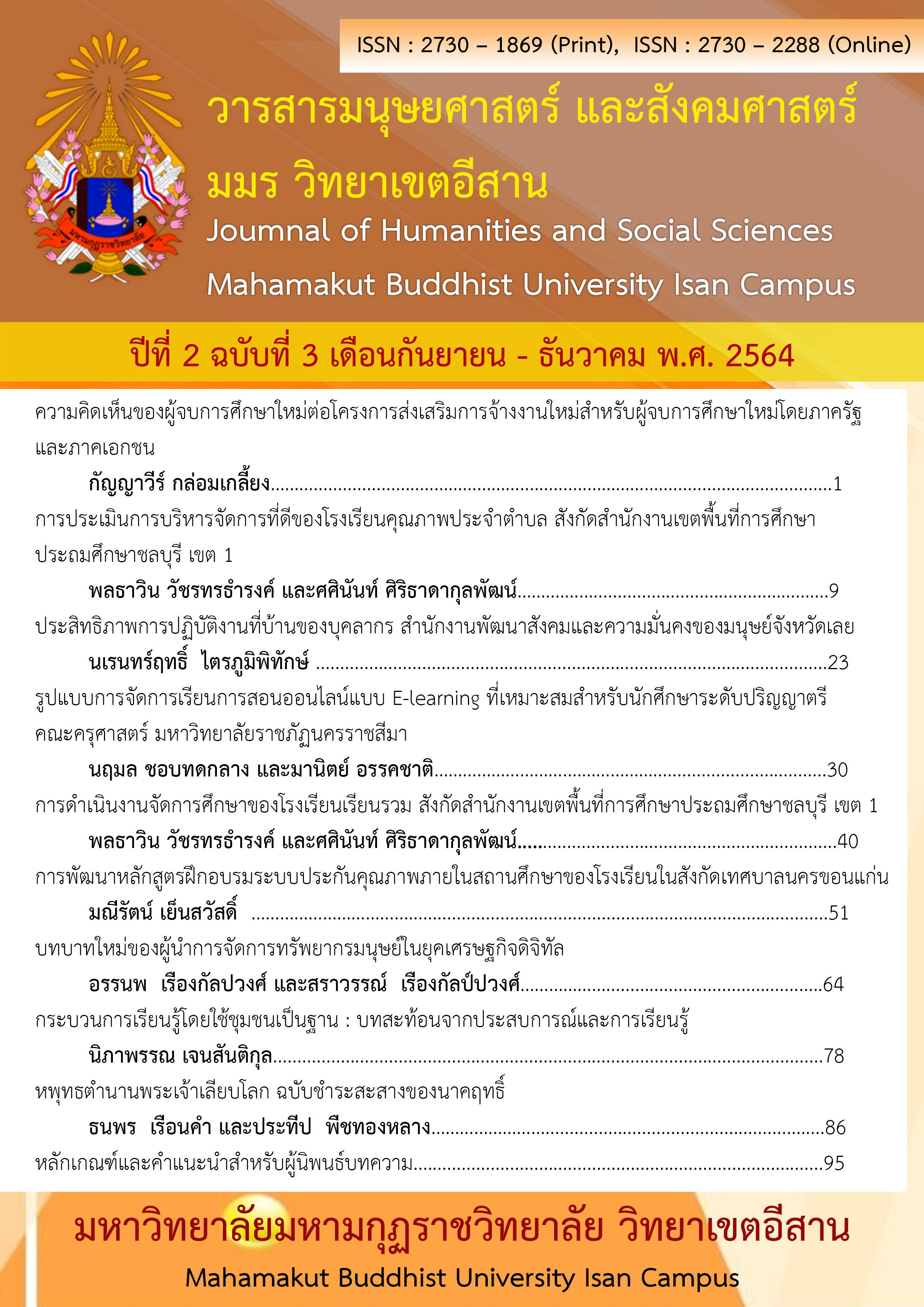New Roles of Human Resource Management Leader in Digital Economy
Keywords:
Keywords: Human Resource Management; leader; Digital economy eraAbstract
Abstract
The advancement of digital technology makes the world into the economy and digital social system. The leaders must bring digital technology to be a functional support tool. Given the importance of driving the organization by accepting technology to apply for work along with adjusting the new paradigm for all levels to work with technology as well as designing innovation culture and innovative ecosystems that are suitable for the context of the organization, leaders must know how to adjust the leadership. Adjust the organization structure and adjust the technology management system to the operator to access information, leading to changes in the digital age effectively as well as adjusting the working style of human resource management agencies in the new normal era (New normal) after the outbreak of the Covid-19 virus that need to be adjusted according to the changing currents of the world situation Leaders must turn jobs into tasks that focus on reaching people at all levels. Organize the safety and welfare care system Raise the standard of hygiene for people in the organization and pay more attention to the lives of employees restructured work into a hybrid model which is a working style that combines from working in an enterprise and working remotely into one.
References
จักรี ศรีจารุเมธีญาณ และชุติมา ศรีจารุเมธีญาณ. (2563). กลยุทธ์การปรับตัวองค์การเข้าสู่ยุค 4.0. วารสารพุทธมัคค์ ศูนย์วิจัยธรรมศึกษา สำนักเรียนวัดอาวุธวิกสิตาราม, 5 (1), 54-62.
ณัฐวุฒิ พงศ์สิริ. (2563). HR การบริหารทรัพยากรมนุษย์ในยุคดิจิทัล. วารสารการบริหารฅน. [ออนไลน์] สืบค้นจาก https://www.khonatwork.com/post/digital-economy-digital-hr. สืบค้นเมื่อ 30 มิถุนายน 2564.
บทบาทใหม่ของฝ่ายทรัพยากรมนุษย์ในยุคดิจิตอล. (2564). [ออนไลน์] สืบค้นจาก https://th.hrnote.asia/personnel-management/190902-hr-roles-digital-age/. สืบค้นเมื่อ 30 มิถุนายน 2564.
ประคอง สุคนธจิตต์. (2562). ทรัพยากรมนุษย์ยุค 4.0. วารสารมนุษยศาสตร์และสังคมศาสตร์ นายเรืออากาศ, 7 (ธันวาคม 2562), 18-28.
พลวศิษฐ หล้ากาศ. (2564). ประเด็นความท้าทายที่มีต่อบทบาทนักทรัพยากรมนุษย์ในอนาคต. วารสารวิจัยวิชาการ, 4 (2), 251-260.
เยาวลักษณ์ จิตต์วโรดม. (2560). บทบาทและทักษะหลักของภาวะผู้นำในยุคสังคมดิจิทัล. วารสารธุรกิจปริทัศน์, 9 (2), 81-92.
รุ่งรัตน์ พลชัย. (2563). ภาวะผู้นำกับการบริหารในยุคดิจิทัล. วารสารมนุษยศาสตร์และสังคมศาสตร์ มมร วิทยาเขตอีสาน, 1 (3), 53-62.
วรวรรษ เทียมสุวรรณ, วัชรพล วิบูลยศริน, ศิโรจน์ ผลพันธิน และเหม ทองชัย. (2562). ภาวะผู้นำเชิงกลยุทธ์ในศตวรรษที่ 21. วารสารบัณฑิตวิทยาลัย มหาวิทยาลัยสวนดุสิต, 15 (2), 219-231.
สำนักงานคณะกรรมการพัฒนาการเศรษฐกิจและสังคมแห่งชาติ. (2559). เศรษฐกิจดิจิทัลกับอนาคตประเทศไทย. วารสารเศรษฐกิจและสังคม, 53 (2), 1-52.
Horder, A. (2010). Change, Complexity, Competition. [ออนไลน์] สืบค้นจาก https://andrew horder.com/change-complexity-competition สืบค้นเมื่อ 18 ธันวาคม 2564.
Ivancevich, J. M., Konopaske, R. & Matteson, M. T. (2014). Organizational behavior and management (10th ed.). Boston: McGraw-Hill.
Stodd, J. (2014). The Social Leadership Handbook. United Kingdom: Sea Salt Publishing.
Stodd, J. (2016). 10 Reasons for Social Leadership. [ออนไลน์] สืบค้นจาก https://julianstodd.wordpress.com/2016/07/09/10-reason. สืบค้นเมื่อ 30 มิถุนายน 2564.



